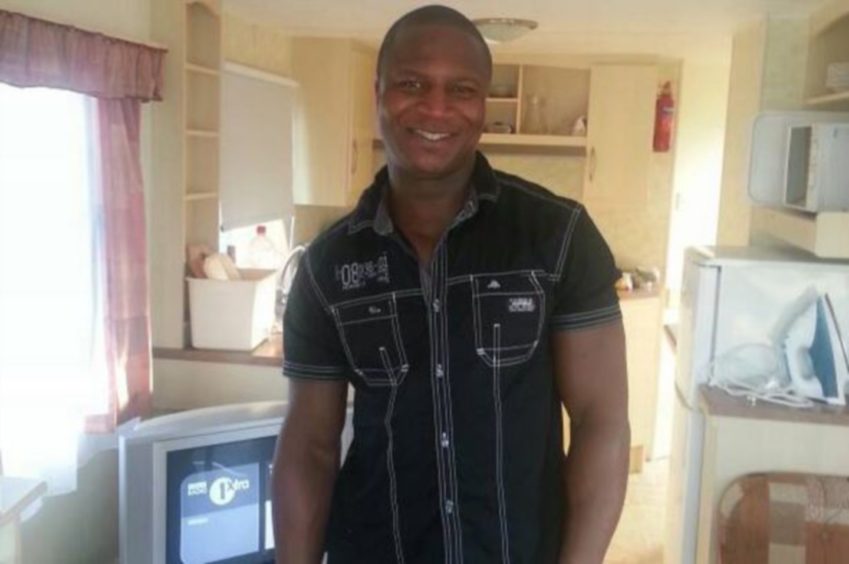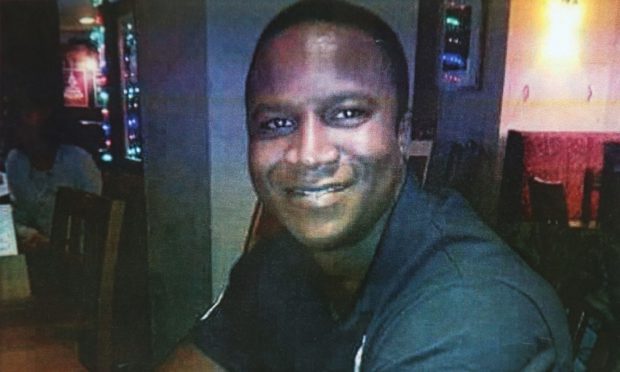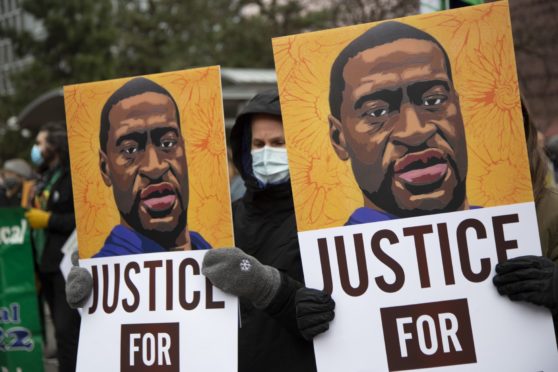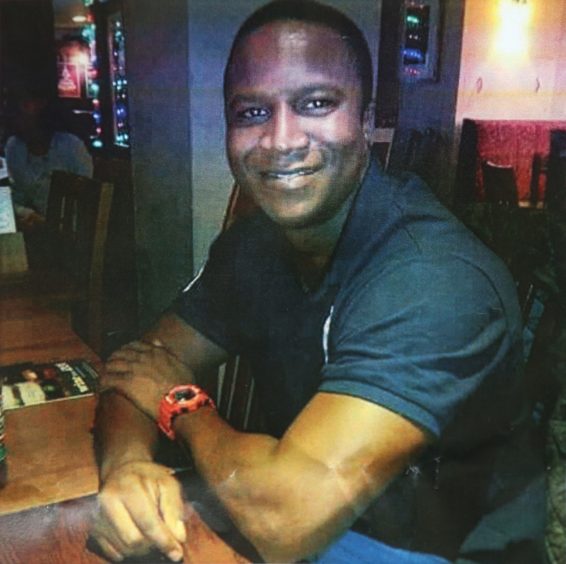The family of Sheku Bayoh have welcomed the verdict in the George Floyd murder trial in America as their own fight for justice continues.
Bayoh, 31, from Kirkcaldy, died in the early hours of May 3 2015, as officers attempted to arrest him.
On Tuesday former police officer Derek Chauvin was convicted in a US court after African-American man George Floyd died whilst being arrested in Minneapolis in May 2020.
A jury found Chauvin guilty of second degree murder, third degree murder and manslaughter.
Chauvin was found guilty after mobile video footage captured Chauvin kneeling on the 46-year-old’s neck for over nine minutes before he died.
The death triggered outrage and demonstrations across the globe and formation of the Black Lives Matter movement.
Capaigners in Tayside and Fife have welcomed the conviction.
Ongoing inquiry
An independent public inquiry into the Kirkcaldy man’s death, launched in November 2020, continues.
His family were devastated in 2018 when Lord Advocate James Wolffe revealed his determination not to prosecute any of the police officers involved in his death.
The current inquiry is gathering evidence to examine:
- The immediate circumstances leading to the death of Mr Bayoh
- How the police dealt with the aftermath
- The subsequent investigation into the death
- Whether race was a factor
‘Betrayal of justice’
Bayoh’s sister, Kadi, said she “could not believe how similar” her brother’s case was to that of George Floyd and has hit out at the way it had been handled in Scotland.
A statement issued by the family’s solicitor, Aamer Anwar read: “The Bayoh family could not believe how similar Sheku’s case was to that of George Floyd, who also was criminalised, stereotyped and smeared in order to justify his death.
“Sheku Bayoh’s family have learnt a great deal from the trial and the Lord Advocate James Wolffe QC must answer for his betrayal of justice and failure to prosecute any police officers for Sheku’s death.

“The Bayoh family were impressed with the swift time frame from the death of George Floyd to the successful prosecution of one of the police officers Derek Chauvin.
“All of which begs the question as to how the Lord Advocate can justify taking over four years to decide whether police officers would face prosecution for allegedly killing Sheku.
“George Floyd died with one officer holding him down, whilst Sheku Bayoh, unarmed, had up to six officers on top of him, was handcuffed with leg restraints, suffering multiple injuries including lacerations and a fractured rib, he fought like George to be able to breathe, yet the Lord Advocate decided not to prosecute.
“The Bayoh family are asking the Lord Advocate to show courage and revisit his flawed non- prosecution decision in light of the George Floyd Trial.
“The Lord Advocate could still bring to trial those allegedly responsible for the death of Sheku Bayoh.”
As the sixth anniversary of Sheku Bayoh’s death draws near, the family say they will continue to campaign seeking justice, while an independent public inquiry into his death.
Crown reserves the right to prosecute
Responding to the family’s comments, a spokesperson for the Crown Office & Procurator Fiscal Service, said: “The Crown examined the death of Sheku Bayoh in great detail, including the eyewitness accounts of police and civilian witnesses, and instructed appropriate lines of investigation.
“Following careful consideration, and then a thorough review, of all the available evidence by Crown Counsel, the most senior professional prosecutors in Scotland, it was concluded that there should not be a prosecution in this case.
“Although the evidence currently available would not justify criminal proceedings, the Crown reserves the right to prosecute should evidence in support of that become available.
“The Crown is committed to supporting the public inquiry which has been established to examine the circumstances surrounding the death of Mr Bayoh.
“In order to respect the inquiry process the Crown will not comment in detail at this time.”


